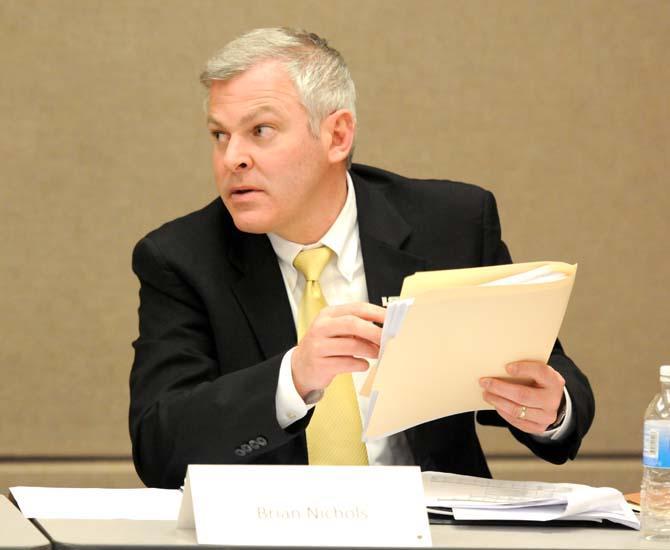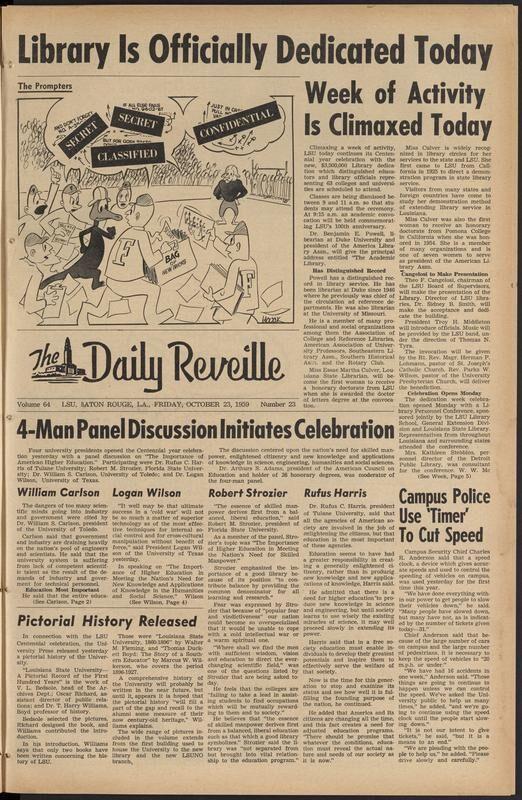The Transition Advisory Team’s Technology task force discussed Thursday the necessity of consolidating services while the Revenue Generation task force spoke about the benefits of privatizing parts of the University.
The Transition Advisory Team is evaluating ways to reorganize the components of the LSU System. The Team will present its initial findings to the LSU Board of Supervisors on March 18.
Director of Finance and Administrative Services Patrick Martin presented to the Revenue Generation task force about the cost-saving benefits of privatization.
Privatized services at the University include the bookstore, dining and concessions, said Martin.
“Privatization makes a lot of sense in a number of areas,” he said. “There may be other areas that are worthwhile to explore.”
The University saves money from a drop in full-time employees, Martin said.
“For dining, bookstore and concessions, that’s 200 total full-time employees that we’ve dropped essentially to zero to a savings of over $3.5 million in personnel alone,” he said.
Auxiliary models that include residential housing, athletics, parking, student media, student health and Auxiliary Services also benefit the University because they operate from self-generated revenue.
“Each one is 100 percent self-supporting. They don’t get tuition money; they don’t get state general fund money,” Martin said.
About 80 percent of housing residents are freshmen, and retention rates of freshmen who live on campus is 86 percent, but only 79 percent for those who live off campus, he said.
“The more kids feel that they’re part of the University, that they know other people … those are the things that affect retention rates,” Martin said.
The profitability of student housing allows the University to invest the money back into housing. The money is put back into preparing for things like maintenance and replacement plans, he said.
The consolidation of email accounts was a big item at the Technology meeting. Chief Information Officer Brian Nichols said LSU Baton Rouge has more than 100,000 email accounts that include students, employees and University retirees. Some users have more than one account.
“Email has become such a ubiquitous service,” said retired CIO and Vice President of Exxon Mobil Pat Bodin. “It’s hard to rationalize why you need so many. … I sat on a number of boards of Fortune 500 companies, and I don’t know any that had more than one system.”
President and CEO of the LSU Foundation Lee Griffin said the task force needs to figure out how to gather costs on common items and services that the campuses of the System produce, so that they can think about bulk buying.
“If we — all the campuses — were using the same system like Dell and had that buying power, it would be really big savings,” said Jennifer Rood, professor and associate executive director for Cores and Resources for Pennington Biomedical Research Center.
“The more kids feel that they’re part of the University, that they know other people … those are the things that affect retention rates.”








